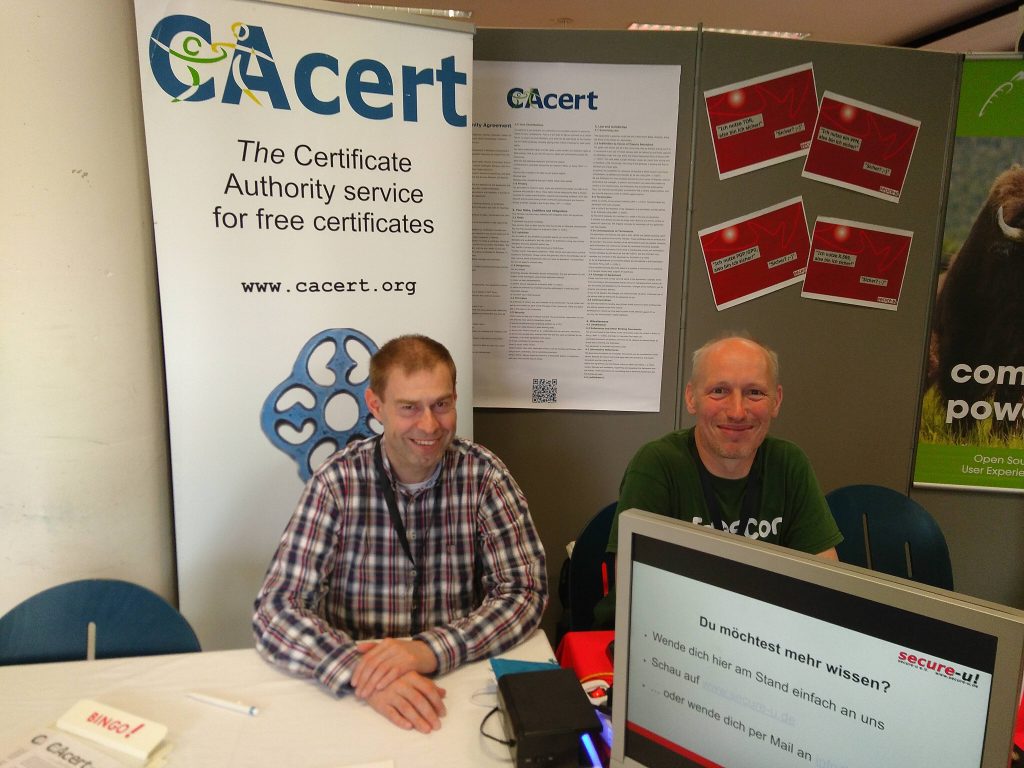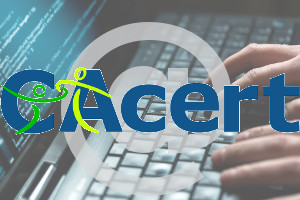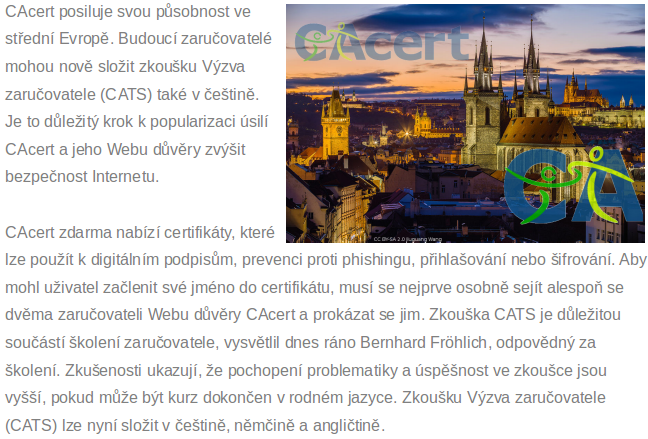 Comme tous ceux possédant un compte chez CAcert, vous avez dû recevoir un email du comité de direction de CAcert Inc., il y a un peu plus de deux semaines, décrivant la situation actuelle de CAcert.
Comme tous ceux possédant un compte chez CAcert, vous avez dû recevoir un email du comité de direction de CAcert Inc., il y a un peu plus de deux semaines, décrivant la situation actuelle de CAcert.
Nous sommes ravis d’annoncer avoir reçu vos réponses par centaines, accompagnées de très nombreuses propositions pour nous aider à faire fonctionner CAcert, et accompagnées aussi d’un montant non négligeable de dons en numéraire. Dans le seul domaine de l’administration de nos systèmes informatiques, plus d’une centaine de propositions d’aide nous sont ainsi parvenues, et le compteur continue à grimper!
Notre gratitude va en premier lieu à tous nos interlocuteurs de ces derniers jours, dont les messages nous donnent l’espoir que la présence de CAcert a encore un sens dans notre monde. Si vous nous avez fait part de votre souhait de nous aider en tant qu’administrateur système, ou de vous investir dans une autre tâche, nous vous remercions d’avance de votre patience, en ce moment où nous devons trier, évaluer et classer par catégories chacune de vos candidatures, mais aussi réfléchir à la meilleure façon de vous accueillir et de choisir ensemble l’activité où chacun se rendra le plus utile. Nous espérons que chacun comprendra que nous ne pouvons tous vous inviter à occuper la fonction qui vous attire le plus. Comme vous vous en doutez, nous sommes bien incapables d’offrir un travail à plus d’une centaine d’administrateurs système! En disant cela, nous espérons qu’une grande majorité d’entre vous fera le choix de nous aider à d’autres tâches, par exemple en traitant et résolvant les incidents rencontrés par les utilisateurs.
Nous invitons tous ceux envisageant de rejoindre une de nos équipes opérationnelles, sans pour autant viser spécifiquement l’administration réseau ou système, à consulter la page https://wiki.cacert.org/comma/Workbench/HelpNeeded ; cette page, récemment mise à jour, décrit un aperçu complet des métiers et des équipes existants à CAcert.
Il serait difficile de ne pas voir l’enthousiasme renouvelé qui est manifesté par les membres de notre communauté. Nous espérons pousser ce mouvement de l’avant.
Avec nos remerciements.
Brian McCullough
Président, CAcert, Inc.
Pour le comité de CAcert, Inc.




